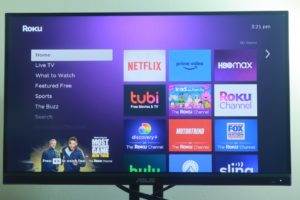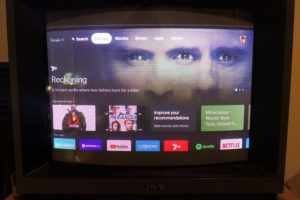Have you been to someone’s home with a living room the size of two football fields where the TV sits at least a mile away? Or maybe you are the “someone” blessed with such residential real estate. Anyway, the point here is most of the time your home TV size needs will be directly proportional to the size of the room you want to use it in. Nowadays for less than $1,000 you can walk into an electronics retailer shop and go home with a giant TV, others will opt for a projector to maximize their viewing experience.
Now, both a large-screen TV and a projector may seem to serve the same purpose but the truth is that they don’t. Actually, they both have their strengths and their downsides depending on the scenario you use them. It is for this reason that in this post we will put them up against each other. By the end you will have known which is best for you; a large-screen TV or a smart projector? Let us get started.
Also Read:
1. Projector vs TV Display Sizes
Most projector screens range between 100 inches and 120 inches. On the other hand, TVs start from as low as 22″ all the way to around 85 inches, although there are some larger TVs. In as much as TVs are catching up with projectors, for quite a while they lagged behind projectors size-wise. Hence if all you care about is the giant-sized display above 100″, what you need is a projector and not a TV. Hence, this category is a clear win for projectors.
2. Brightness
Generally, the higher the ambient lighting where a display is, the higher the brightness required from the display to prevent your picture from washing out. This is a major issue with projectors because they need to bounce light off from a screen. They usually end up with lower actual brightness as compared to TVs. Also, the higher the brightness output of a projector is, the more expensive it is likely to be. Another issue with projectors is that the bulb dims out with time and burns out which is pricy to replace.
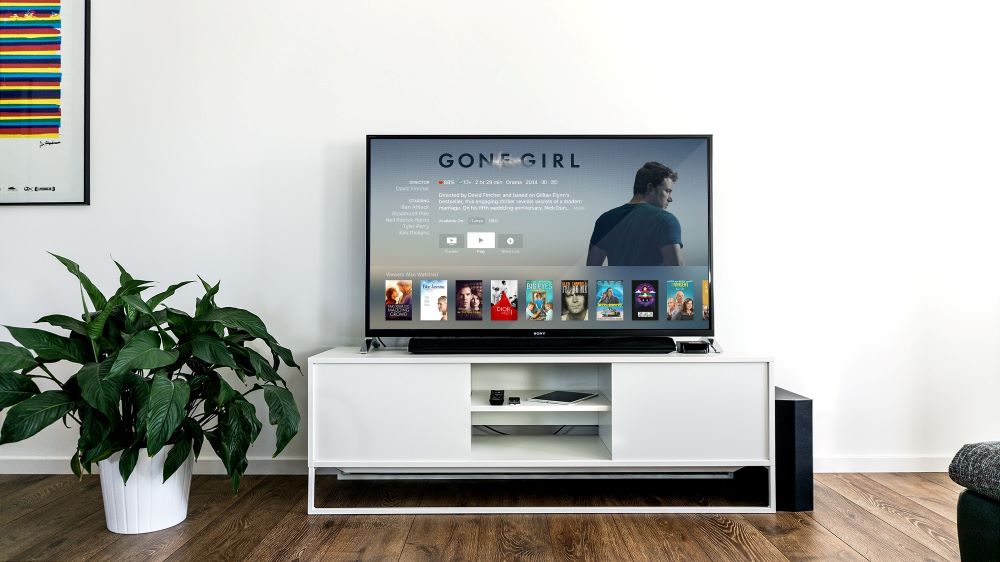
Though there are newer laser projectors that get rid of the bulb problem, they too are not as bright as TVs. Now if you intend to use a projector primarily in a very dark room, it will offer the best comfort to your eyes. This is why movie theatres are dark and use projectors. Anyway, this category is an easy win for TVs.
3. Contrast Ratio
This is another place where projectors do not stand a chance when compared to TVs. Essentially, contrast is a ratio of brightest whites to darkest blacks. Projectors have lower brightness levels and their black levels depend on the room conditions as well as the shade of the projector screen. TVs are not immune to interference from ambient lighting but they battle it much better than projectors. Another clear win for the TV.
Also Read:
- Best Web Browser For Your Android TV
- 6 Things Not to like about Roku TV
- Understanding Smart TV Picture Resolution
4. HDR and Resolution
Projectors lagged behind TVs in terms of support for HDR and high resolutions. It is now very easy to find a 4K HDR projector as easy as it is to find a similar spec TV. The catch is that with such similar specs the projector will be much more expensive than the TV. For instance, you can easily get a 4K HDR TV for about $500 but a similar projector will have you parting with around $1500!
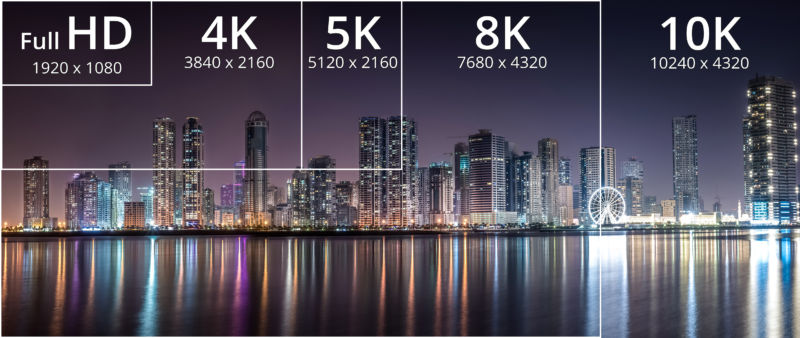
However, if you are after getting the highest possible resolution, you need to buy a TV. This is because even if 8K projectors exist, they are quite rare. Who do you think won this round? Projector or TV? Go ahead and let us know in the comments section down below.
5. Color Accuracy
It is now fairly easy to get very nice colors from a projector without breaking the bank. On the flip side, TVs need good processing power to produce the best color which makes color-accurate TVs more expensive. The difference in color accuracy between projectors and TVs is very small though it’s TVs that edge it by a little margin. So I’ll go ahead a call this a tie with no outright winner.
6. Which is Easier To Install: a TV or a Projector?
In as much as big TVs are heavy and fragile, they are also easy to set up in your house and start using immediately. They also make connections with your other devices like soundbars easier since they will be close together. Even if you decide to mount the TV on a wall, it is fairly straightforward. On the other hand, projectors require some kind of planning before installation to position them correctly.
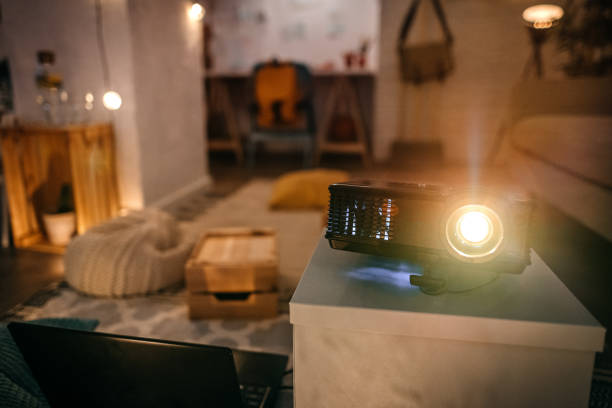
The projector screen also requires placement decisions to be made as they are big. Some are even motorized needing ceiling attachment. Most of the time you will need a professional installer to sort you out with projector installation. You also need longer cables from your other devices to the projector than it is with a TV. TVs win this one also though some newer short-throw projectors are closing the gap.
7. Sound – Do Projectors Come With Inbuilt Speakers?
There are many TVs, especially high-end ones, that have inbuilt speakers that are of high quality. Though there are some types of projectors with speakers, they rarely beat TVs. If you are looking for a proper immersive home theatre experience, you may want to consider a sound bar or home theatre sound system. I’m inclined to not name a winner here because no one buys a projector for its sound quality, altogether TVs are better at audio than projectors.
Also Read:
8. Projector vs TV Smart Features
This category will be a stalemate because, most if not all, projectors come with smart connectivity platforms just like TVs. For example, Samsung projects come with the Tizen OS pre-installed and Hisense projectors come with Android/Google TV. Optoma projectors also have their own platform where you can download apps. Additionally, the majority of projectors come with associated voice assistants such as Samsung Bixby, Google Assistant, or Amazon Alexa. These are all features you can find on a smart TV. See why this is a draw?
9. Flexibility of Use
In most cases, once a TV has been positioned it is not easy to move it around. This is the same case with projector screens as well as wall-mounted TVs. However, some projector models are very compact to move around if you don’t mount them on the ceiling. Projectors have a certain level of versatility that is hard to find on TVs. You can easily set up an outdoor movie night at home with a projector than with a large-screen TV.
Also Read:
- How To Buy A Gaming TV (2022 Buyer’s Guide)
- The Best 4K TV You Can Get on a Budget in 2022
- 5 Thing to Love about Android TV and Google TV
10. TV vs Projector Costs
Generally as earlier highlighted, for similar specs, a projector is likely to be more expensive than a TV. Additionally paying more for a TV will definitely get you much more features than doing the same for a projector. Expensive TVs can have very bright and color-accurate QLED screens paired with an inbuilt sound system that projectors can only dream of.
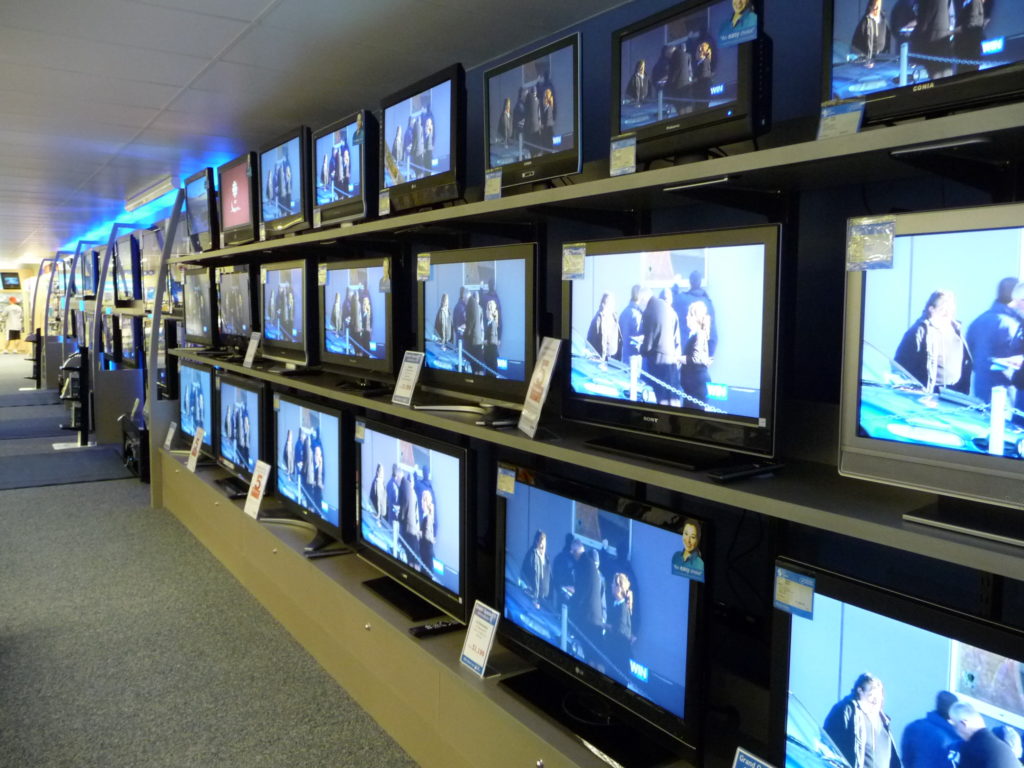
To make matters worse, once you buy a projector you will need to spend some extra cash on a projector screen and professional installation services. Cost-wise, TVs are more affordable than projectors.
Conclusion
In most domestic applications, unsurprisingly, a TV will always beat a projector mainly because of the costs and space needed to install it. But in terms of overall viewing experience and entertainment, a TV cannot come close to what a projector offers. With proper planning and determination, you can achieve a cinema-like setup with a projector that no TV can ever offer you. On the other hand, if all you want is a simple straightforward setup get a TV.
Featured Image Credit: which.co.uk
Discover more from Dignited
Subscribe to get the latest posts sent to your email.



